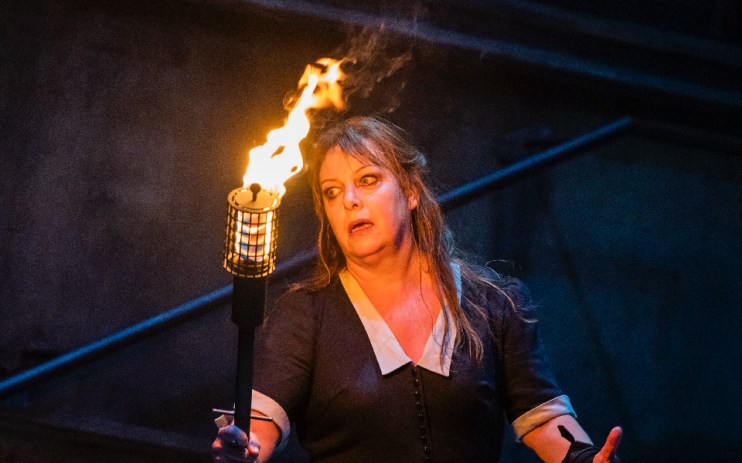Elektra at ROH review: A sharp, star studded hit

There’s a lot of insanity in opera, but none so steeped in insanity as Richard Strauss’s Elektra. Written and composed during the defining decade of psychoanalysis, Elektra is Strauss’s foray into early modernism wrapped up in an ancient tale of bloodcurdling matricide.
Thanks to director Christof Loy, this cataclysmic story of one very complex woman’s doomed family, is once again given a sharp, star studded, new production at the Royal Opera House.
Where to start? We should begin where Loy did, with a clear nod to the opera’s genesis in the work of its composer Richard Strauss and the opera’s librettist Hugo Von Hofmannsthal. The show opens on the servant’s side of a great Secessionist mansion; but the grandeur of a large neo-classical doorway is offset by walls coated in soot and a stage strewn with miscellaneous junk.
The servants themselves, having nipped round the back for a cheeky fag, lounge around bitching about Elektra. Reduced to little more than a servant by her mother, Klytämnestra, Elektra has regressed into a wild and violent being. Her one solace is her obsessive thoughts of avenging her father’s murder by her mother’s hand.
Nina Stemme is in the opera’s title role. A tour de force performer, known for her exceptional command of opera’s most challenging roles, Stemme certainly gets her teeth into Elektra’s gritty psyche. While the strains of such a demanding role do make themselves manifest, Stemme leans into this uncontrollable, bodily fury. It’s not a subtle performance, but it is driven, spectacularly, by passion.
This is much the same for Karita Mattila, singing Klytämnestra. In the lower register, the Finish soprano struggles to make herself heard, but her physicality is undeniably impressive. She’s all decadence and luxury, with every fondle of her fur adorned get-up pointing to Cruella de Ville. Mattila’s presence on stage was a masterclass in the vindictive head turn.
Perhaps a little ironically, it is in Elektra’s sister, the timid Chrysothemis, that we see operatic gold. Possessing none of Elektra’s ferocity, Chrysothemis has an odd relationship to the focal antagonism. Kept like a caged bird by Klytämnestra, and resented for her inaction by Elektra, Chrysothemis yearns for a quiet life in the arms of a lover. Sara Jakubiak somehow finds the guts in this pitiful character, and the reach and soar of her fine soprano is astounding.
Loy’s sparse production, never shifting from the façade of the house, largely relies on the success of these three characters to make it tick. While power dynamics are alluded to in the costuming, and in the glare of a grandly lit hallway, the real destruction of luxury, family, power is all down to the music, and conductor Antonio Pappano.
During this production, Pappano’s command of the orchestra is absolute, delivering ravishing moments of heated violence. In his final new production as Music Director of the Royal Opera House, a role he has had for over two decades, he bows out on a career high. Much like Elektra herself, he ends in a parade of glorious but bittersweet triumph.